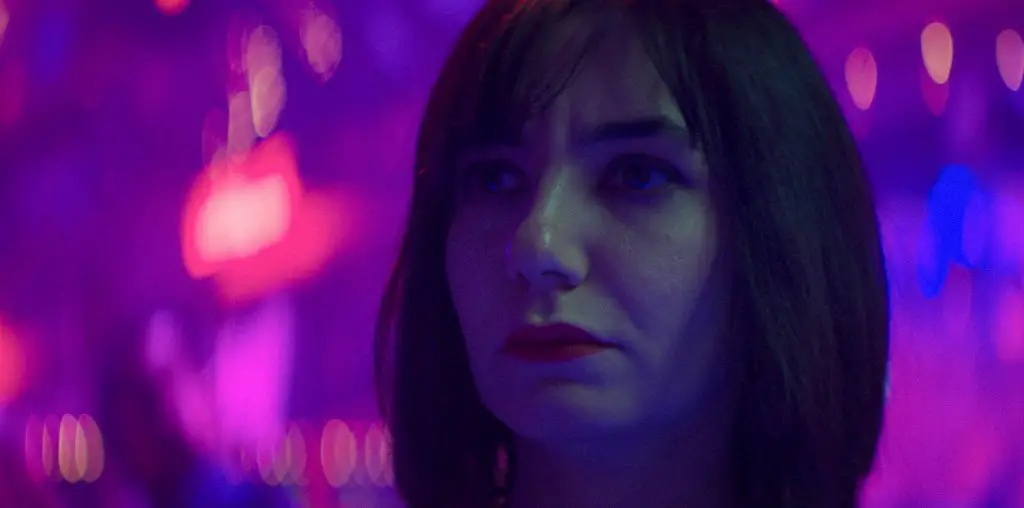
During a strange electrical storm, in which the moon has mysteriously turned green, we meet a couple of cops, as jaded as the moon, and Felix, a well-to-do but eccentric alcoholic city-dweller. Felix seems to take a ritualistic approach to life, welcoming Willie, a crazed and dirty vagabond into his home each Friday and going through a lot of obsessive-compulsive motions to get through dinner. On this night, Felix ends up dozing on the sidewalk just outside his home with a folding chair and a glass of booze.
The two cops intercede to stop a burglar who is attempting to make off with Felix’s possessions. Suddenly all three are forced inside by some kind of green lunar cataclysm that causes most pedestrians in the vicinity to fall
to the street and wake up as slow-witted homicidal zombies. They are joined by another couple seeking shelter and begin to work on the problem of being besieged by flesh-eating, green slime-oozing neighbors.
There’s something to be said for a cleverly descriptive title that doesn’t reveal too much about the movie. Sometimes it even pays to be somewhat misleading. This film, for instance, is never particularly scary, but director Brad Keller can perhaps be forgiven for not wanting to label his film or allow it to be stereotyped sight unseen. Keller begins with a zombie movie ala George Romero. And when I say “ala”, I mean it. Keller wisely dispenses with creating his own zombie mythos and just borrows the tried and true rules that all Romero zombies and lampoon zombies seem to follow. He even names one of the cops George Romero as an outright admission of guilt on this count.
Except for the green goo that oozes from the zombies’ wounds, they follow virtually the other zombie rules: They are fairly slow and clumsy and if you shoot them in the head they die permanently. On the other hand, they will try and overwhelm and eat you, and those bitten will always become zombies themselves. Given these rules, Keller is faced with the task of putting a unique and creative spin on the human protagonists and to a large extent he succeeds. The audience is not meant to be mindlessly pulled along in the characters misadventures. Keller makes you think. Each time Felix takes a drink an audible bell of some sort sounds. Such clues alert us (or ought to) that something is going on under the surface of this film, telling us that we should pay attention. There are subtexts to the film dealing with names, appearances, the trappings of authority and identity. The cops disagree in their philosophical approach to their jobs. Felix is revealed to be the uncle of one of the cops who calls him Uncle Jack. The go-go booted blonde scream-queen turns out to be a competent nurse. The film is peppered with great, enigmatic dialog. “You don’t have a fire escape” accuses Felix’s nephew. “This place was just for fun” answers Felix.
Throughout the ordeal, Felix drinks and frequently pauses to philosophize about their situation. We get the feeling that Felix, Keller and writer John Steakley (Vampire$) know more than they are telling, but not necessarily about the zombies or the strange condition of the moon. To his credit Keller doesn’t attempt to reveal all the answers to the questions we would ask Felix. Perhaps he doesn’t entirely shake the bonds of the schlocky Romero rip-off and perhaps he doesn’t intend to. The drama he creates with his human characters, notably Felix/Uncle Jack, is more than enough to elevate the film above the typical zombie shooting gallery.
